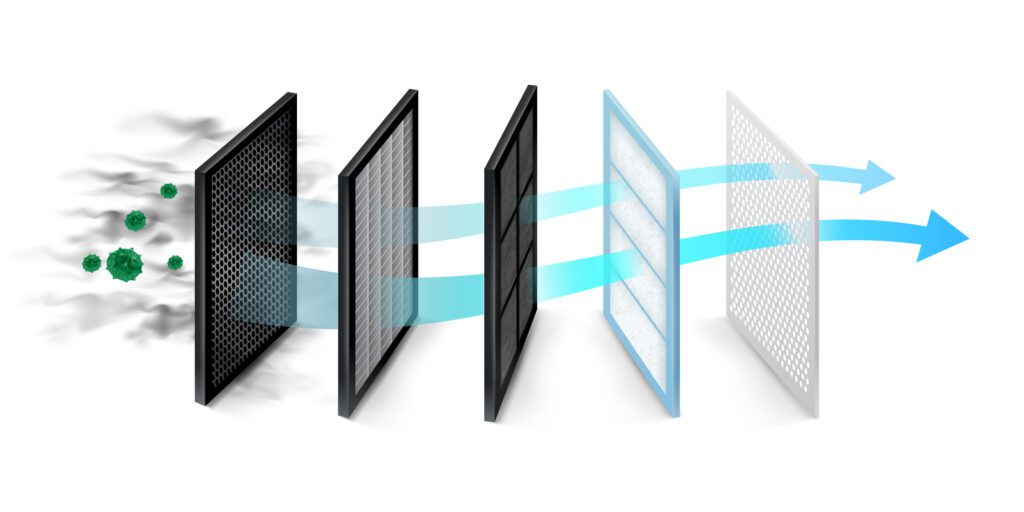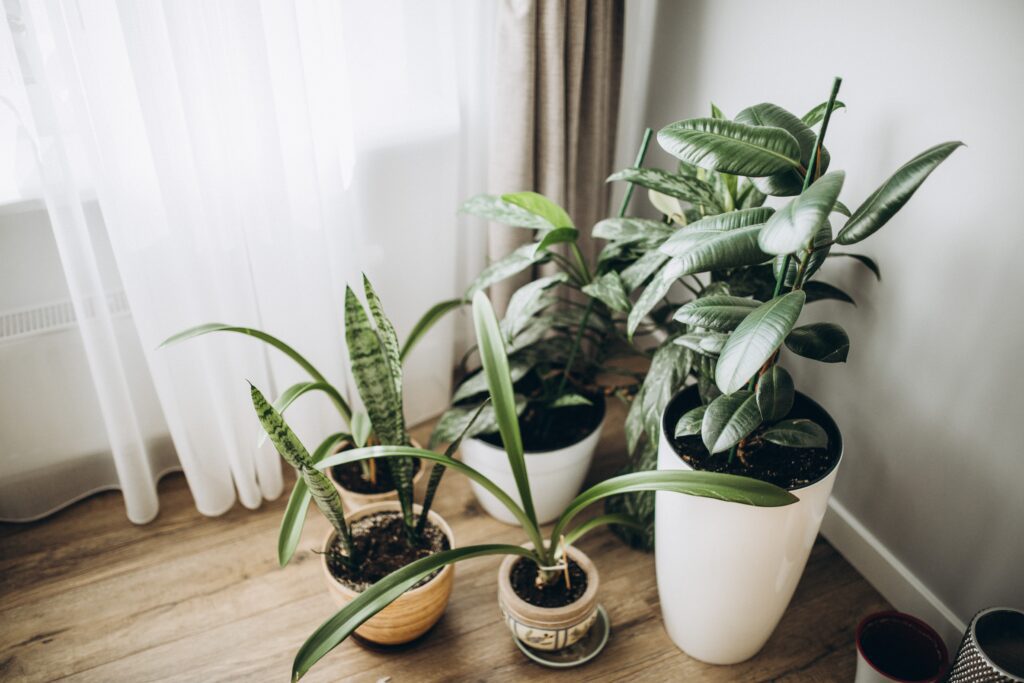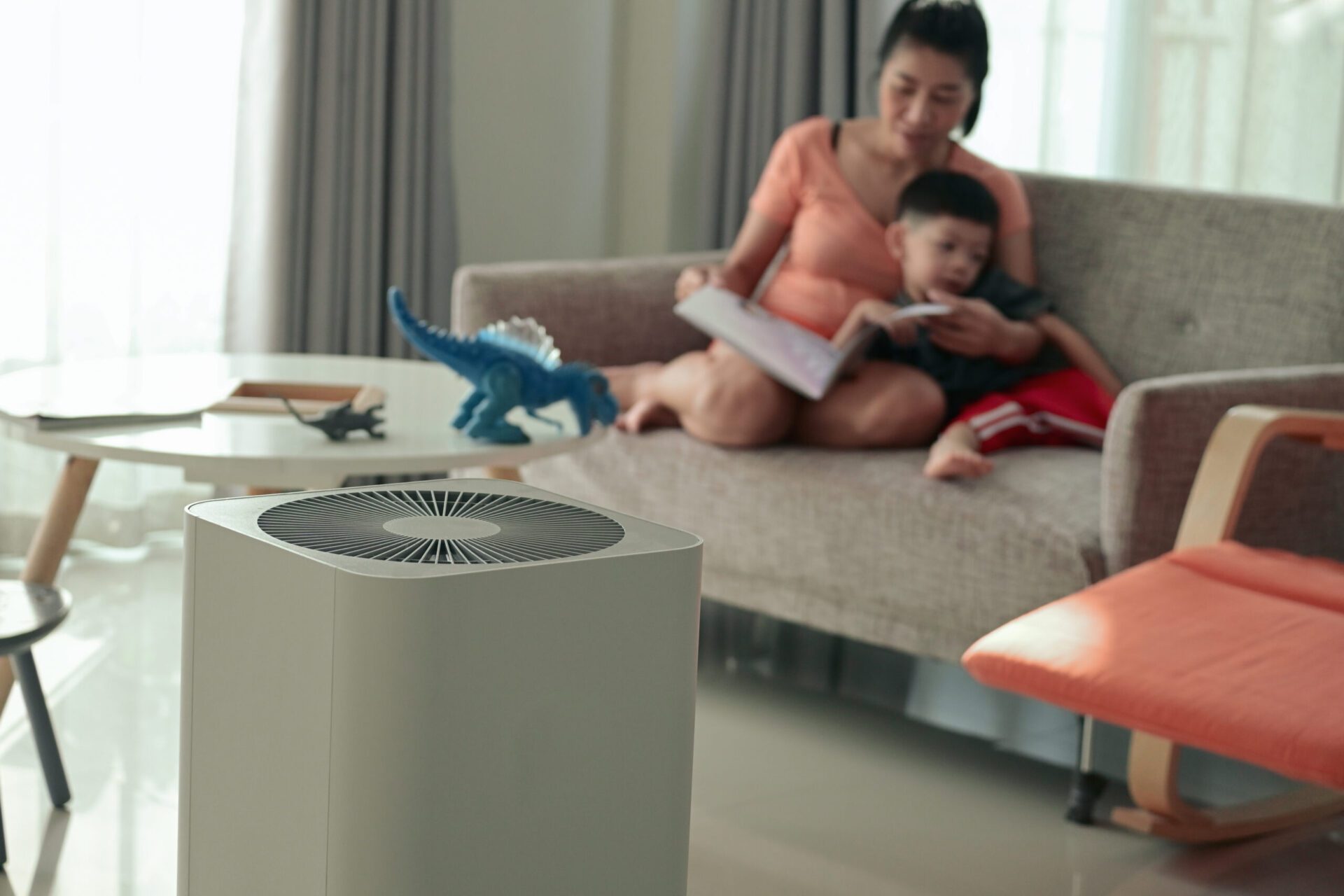When we think of pollution, we often conjure images of city smog, exhaust from bumper-to-bumper traffic, or industrial smokestacks with dense black fog. But it’s not just the outdoor air we have to worry about – your indoor air can be just as polluted, if not more so, than the air outside.
Indoor air quality isn’t something we think about every day, but it’s vital to our health. Find out more about how to improve indoor air quality.
Indoor Air vs Outdoor Air
If you think the clean, enclosed air in your home is the safer bet than the air quality outside, think again.

According to the EPA, the levels of indoor air pollutants can be two to five times higher than outdoor levels. In some cases, indoor air pollutant levels can exceed 100 times the levels of outdoor air.
Indoor Air vs Outdoor Air Misconceptions
As mentioned, many people mistakenly believe that outdoor air is more polluted than indoor air because of car exhaust, industrial waste, and environmental allergens. Unfortunately, many outdoor pollutants can be brought into your home, and some are created by sources inside your home.
Sources of Indoor Pollution
There are many sources of indoor pollutants, including common items that are found in most homes. Household cleaning products and fumes from supplies or cooking, such as oil, gas, coal, and wood, can contribute to indoor air pollution. There are also extremely dangerous gases and degraded materials that can cause pollution, such as carbon monoxide, nitrogen dioxide, asbestos, and insultation.
Health Effects of Indoor Air Pollution
Our lungs act as a filter for our bodies, drawing air in and removing pollutants. The more polluted that air is, however, the harder your lungs need to work to remove them. Whether polluted air is indoors or outdoors, it can have negative health effects.
- Asthma
- Respiratory problems
- Allergies
- Irregular heartbeat
- Decreased lung function
- Nonfatal heart attacks
- Premature death in people with heart or lung disease
Ways to Improve Indoor Air Quality
Want to improve your indoor air quality? Here are some ways you can keep your home’s air fresh, clean, and healthy.
Change the AC Filter
Air conditioners work hard to keep your home comfortable in the summer heat and filter out some common air pollutants. While they do their job, however, the air filters are gathering dust, debris, and pollutants to prevent them from circulating through your home. If you don’t change your filters regularly, it can contribute to poor indoor air quality and add wear and tear to your AC system.

You can change your AC filters regularly or schedule regular AC maintenance, which typically includes a filter change. This is especially important if you live in an area with a lot of pollution.
Check Air Ducts
Air ducts on your HVAC system distribute the heated and cooled air through your home. Like the AC filter, your air ducts gather dust and debris through regular use, which can lead to a lot of buildup throughout the system. The air is circulated, bringing that dust and dander back into your home and hurting your air quality.
A professional air duct cleaner should be part of your regular HVAC maintenance plan to ensure your system is pumping out fresh, clean air throughout your home.
Use Cooking Vents
The kitchen is a big culprit in harming your indoor air quality with pollutants, including carbon monoxide and nitrogen dioxide. Though gas stoves release a lot of contaminants, electric stoves are still responsible for some indoor air pollution.
When you’re cooking, turn on your kitchen vents and open a window to ventilate the area and release the pollutants. Otherwise, they can be absorbed by your body.

Open Windows
Letting fresh air in is one of the best ways to improve your indoor air quality. Though it may seem counterintuitive to open your windows in the winter and let the heat out, it’s best to do so on occasion to improve ventilation and reduce the humidity that dust mites require to survive.
Use Home Air Purifiers
Cleaning regularly cuts down on dust and dander, but what about the allergen particles in the air? Home air purifiers can remove almost all the pollutants in your home by drawing in the dirty indoor air, filtering it, and releasing cleaner, fresher air. It’s especially helpful to have an air purifier during the allergy seasons, which are typically late spring to early summer.
Purchase Indoor Plants
Plants are natural air filters. Though you need a lot of plants to truly freshen the air, even a few plants – combined with other improvements – can help with your indoor air quality. Consider a mix of smaller and larger plants, such as potted ferns and large palm trees.

Control Humidity
Most indoor pollutants thrive in heat and moisture, including your bathrooms and basement. Try to reduce indoor humidity by opening the windows to release condensation and showering with the bathroom door closed.
If you struggle to control your indoor humidity, especially in the basement or other high-moisture areas, invest in a dehumidifier. This small investment can go a long way in reducing the humidity in your home.
Looking for indoor air quality solutions? Contact us at Sierra Air to schedule your appointment!


